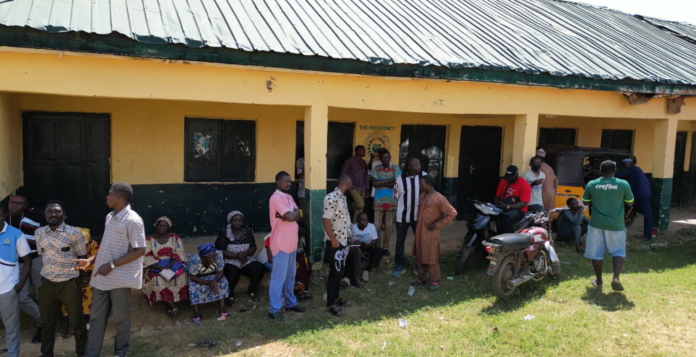By Hosea Parah, Abuja
The Middle Belt Forum (MBF), Kaduna State Chapter, has expressed grave concerns regarding the announcement of election results for the recently held Local Government elections, which took place on October 19. A video featuring Hajia Hajara Mohammed, the Chairman of the Kaduna State Independent Electoral Commission (KAD-SIECOM), surfaced online, declaring that the elections were conducted across all 255 wards and 23 local government areas (LGAs) in the state, with the All Progressives Congress (APC) winning every seat.
The MBF argues that elections did not take place in the majority of the 12 LGAs within the Middle Belt region of Kaduna. Reports from various sources indicate that election materials arrived late and without result sheets, leading to widespread voter mistrust and refusal to participate.
In a statement, the MBF outlined several key points:
1. Election Integrity: They asserted that no results could have been declared from wards or LGAs, as the elections were not conducted as mandated by KAD-SIECOM laws.
2. Allegations of Manipulation: The forum dismissed documents circulating on social media claiming to be official results as fraudulent, highlighting that no legitimate results were collated.
3. Call for Accountability: The MBF urged Governor Uba Sani to critically review the situation, emphasizing that allowing these results to stand would undermine his credibility and damage trust within the community.
4. Future Implications: The forum warned that such electoral malpractice could have severe consequences for future elections in the state, characterizing it as a setback for democracy.
In light of these developments, the MBF made several recommendations:
– They called on the Kaduna State House of Assembly to amend KAD-SIECOM laws to impose stricter penalties for electoral offenses.
– They urged Governor Sani to take a decisive stand against the announced results to bolster democracy and restore faith among constituents.
The MBF concluded by urging its members to remain calm and pursue legal avenues for any grievances arising from the elections, reinforcing their commitment to peaceful advocacy rather than resorting to violence.
The unfolding situation raises critical questions about the electoral process in Kaduna State, with potential ramifications for future governance and political stability.

